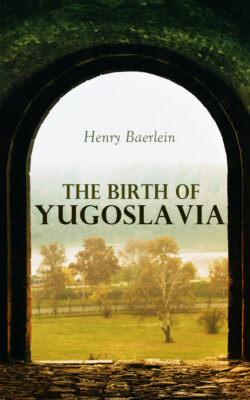Читать книгу The Birth of Yugoslavia - Henry Baerlein - Страница 67
На сайте Литреса книга снята с продажи.
A SORRY PERIOD FOR THE SOUTHERN SLAVS
ОглавлениеWhen the Croat National party looked at Serbia they saw a people torn in two by rival dynasties: Michael, the son of Miloš, had after a few years followed his father into exile, as he also could not grow accustomed to ruling with a Constitution. After him came Alexander, son of the assassinated Kara George. He was a cold, indifferent, slothful prince, and constantly the banished house of Obrenović was plotting to turn out this scion of the house of Kara George. But after sixteen years his people turned him out. … In the Banat the Serbs were going backward. For example, they were at the summit of their strength in Arad in the eighteenth century, and since then they had been unable to resist the German wave. Time was when Arad had a Serbian princess, the wife of blinded Bela; and they were much esteemed when from 1703–1711 the Serbian cavalry and infantry had fought so strenuously for Austria against the rebels. Afterwards the Austrians believed they could get on without the Serbs; they started to destroy their privileges and to persuade them to give up their Church—it was in consequence of this that many of the Serbs in Arad went to Russia. A certain Colonel Peter Szejadinac objected to the Austrian policy and came to Arad for the purpose of procuring some alleviation for the Serbs, but he was broken on the wheel. In Temešvar the Serbs had also basked in glory. Until 1818 they had owned all but seventeen houses of the inner town; they had their own magistrature. Until 1860 they remained the wealthiest community, but here also there was an influx of Germans against which they could not stand.
